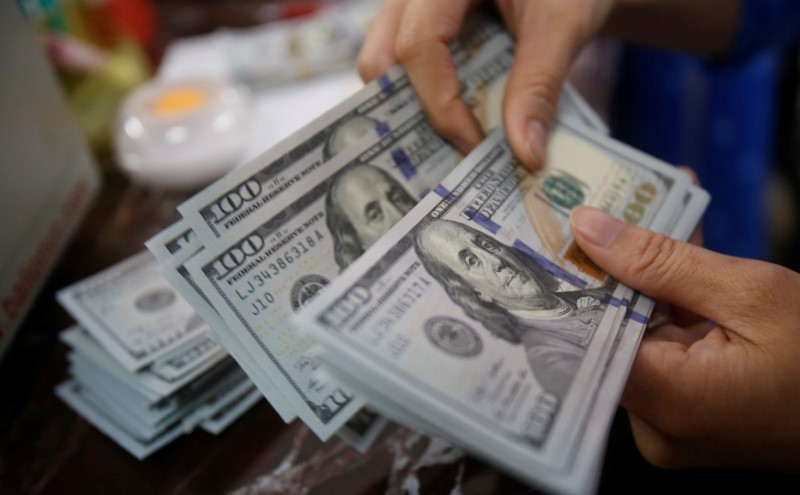By Peter Nurse
Investing.com - The U.S. dollar slipped lower in early European trade Friday and riskier currencies rallied on easing concerns about a global banking crisis.
At 04:25 ET (08:25 GMT), the Dollar Index, which tracks the greenback against a basket of six other currencies, traded 0.4% lower at 103.715.
The foreign exchange market has seen a relief rally after a number of large U.S. banks injected $30 billion in deposits into First Republic Bank (NYSE:FRC), supporting this regional bank which had been caught up in the backwash of the collapse of two other smaller U.S. banks over the past week.
The move followed Credit Suisse's (SIX:CSGN) announcement earlier on Thursday that it would borrow up to $54B from the Swiss National Bank, ensuring the embattled lender had sufficient liquidity to cope with hefty withdrawals in the wake of a number of banking scandals.
EUR/USD rose 0.5% to 1.0659, benefiting from the decision of the European Central Bank to go ahead on Thursday with its previously signaled 50-basis-point rate hike amidst the banking turmoil.
This suggested the ECB policy makers remain confident in the underlying strength of the Eurozone banking sector.
At her regular press conference, President Christine Lagarde trod a fine line between acting tough on inflation and acknowledging the need for caution amid growing signs of financial stability risks.
The final CPI data for the Eurozone is due later in the session, and is expected to show that inflation grew 0.8% on the month in February, up 8.5% on the year.
GBP/USD rose 0.5% to 1.2166, AUD/USD soared 0.8% to 0.6708, NZD/USD gained 0.8% to 0.6246, while USD/JPY fell 0.3% to 133.32.
Japan's government is closely coordinating with the Bank of Japan and financial authorities overseas to prevent fallout from the banking difficulties of a number of Western banks, Finance Minister Shunichi Suzuki said on Friday.
U.S. economic data will center around the release of the University of Michigan’s consumer sentiment reading for March later in the session, which will provide a clue as to how Americans are coping with the current economic difficulties.
That said, most eyes have now moved on to next week’s Federal Reserve monetary policy meeting, with expectations rising that the U.S. central bank could slow its aggressive rate-hike campaign in a bid to ease the stress on the financial sector.
Markets are now pricing in a nearly 90% chance that the Fed will hike rates by a smaller 25 basis points next week.
